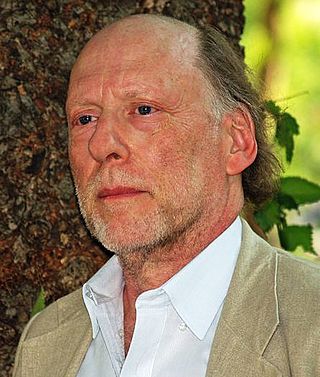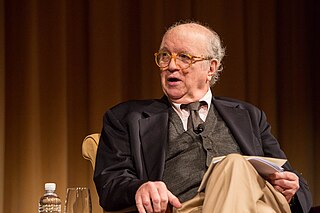Related Research Articles

The United States Post Office Department was the predecessor of the United States Postal Service, established in 1792. From 1872 to 1971, it was officially in the form of a Cabinet department. It was headed by the postmaster general.

The Columbia University Graduate School of Journalism is located in Pulitzer Hall on the university's Morningside Heights campus in New York City. Founded in 1912 by Joseph Pulitzer, Columbia Journalism School is one of the oldest journalism schools in the world and the only journalism school in the Ivy League. It offers four graduate degree programs.

Communication studies or communication science is an academic discipline that deals with processes of human communication and behavior, patterns of communication in interpersonal relationships, social interactions and communication in different cultures. Communication is commonly defined as giving, receiving or exchanging ideas, information, signals or messages through appropriate media, enabling individuals or groups to persuade, to seek information, to give information or to express emotions effectively. Communication studies is a social science that uses various methods of empirical investigation and critical analysis to develop a body of knowledge that encompasses a range of topics, from face-to-face conversation at a level of individual agency and interaction to social and cultural communication systems at a macro level.
Alfred DuPont Chandler Jr. was a professor of business history at Harvard Business School and Johns Hopkins University, who wrote extensively about the scale and the management structures of modern corporations. His works redefined business and economic history of industrialization. He received the Pulitzer Prize for History for his work, The Visible Hand: The Managerial Revolution in American Business (1977). He was a member of both the American Academy of Arts and Sciences and the American Philosophical Society. He has been called "the doyen of American business historians".

Todd Alan Gitlin was an American sociologist, political activist and writer, novelist, and cultural commentator. He wrote about the mass media, politics, intellectual life and the arts, for both popular and scholarly publications.
Richard Read is a freelance reporter based in Seattle, where he was a national reporter and bureau chief for the Los Angeles Times from 2019 to 2021. A two-time Pulitzer Prize winner, he was a senior writer and foreign correspondent for The Oregonian, working for the Portland, Oregon newspaper from 1981 to 1986 and 1989 until 2016.
Ralph Edward Gomory is an American applied mathematician and executive. Gomory worked at IBM as a researcher and later as an executive. During that time, his research led to the creation of new areas of applied mathematics.

John Gerard Ruggie was the Berthold Beitz Research Professor in Human Rights and International Affairs at Harvard Kennedy School at Harvard University and an affiliated professor in international legal studies at Harvard Law School.
Leonard "Len" Downie Jr. is an American journalist who was executive editor of The Washington Post from 1991 to 2008. He worked in the Post newsroom for 44 years. His roles at the newspaper included executive editor, managing editor, national editor, London correspondent, assistant managing editor for metropolitan news, deputy metropolitan editor, and investigative and local reporter. Downie became executive editor upon the retirement of Ben Bradlee. During Downie's tenure as executive editor, the Washington Post won 25 Pulitzer Prizes, more than any other newspaper had won during the term of a single executive editor. Downie currently serves as vice president at large at the Washington Post, as Weil Family Professor of Journalism at the Walter Cronkite School of Journalism and Mass Communication at Arizona State University, and as a member of several advisory boards associated with journalism and public affairs.

Thomas Byrne Edsall is an American journalist and academic. He is best known for his weekly opinion column for The New York Times, Previously, he worked as a reporter for The Providence Journal and for The Baltimore Sun, and as a correspondent for The New Republic. In addition, he spent 25 years covering national politics for the Washington Post. He held the Joseph Pulitzer II and Edith Pulitzer Moore Chair at the Columbia University Graduate School of Journalism until 2014.

Eli M. Noam is an American economist and professor at Columbia Business School, where he is the Paul Garrett Chair in Public Policy and Business Responsibility. He is the director of the Columbia Institute for Tele-Information (CITI). He works on the economics, management, and policy of media and the digital world, most recently on global media ownership and on next-generation “Cloud-TV”. He has written over 400 articles and has authored, edited, and co-edited over 30 books.
Edholm's law, proposed by and named after Phil Edholm, refers to the observation that the three categories of telecommunication, namely wireless (mobile), nomadic and wired networks (fixed), are in lockstep and gradually converging. Edholm's law also holds that data rates for these telecommunications categories increase on similar exponential curves, with the slower rates trailing the faster ones by a predictable time lag. Edholm's law predicts that the bandwidth and data rates double every 18 months, which has proven to be true since the 1970s. The trend is evident in the cases of Internet, cellular (mobile), wireless LAN and wireless personal area networks.

Timothy James Brook is a Canadian historian, sinologist, and writer specializing in the study of China (sinology). He holds the Republic of China Chair, Department of History, University of British Columbia.
Communications in the State of Palestine occur across many media, including telephone, radio, television, and internet. The telecom infrastructure is growing at a very rapid pace and continually being updated and expanded.
Stuart N. Brotman is an American government policymaker; tenured university professor; management consultant; lawyer; author and editorial adviser; and non-profit organization executive. He has served in four Presidential Administrations on a bipartisan basis and taught students from 42 countries in six separate disciplines — Communications, Journalism, Business, Law, International Relations and Public Policy. He also has advised private and public sector clients in more than 30 countries in five continents.
The Shorenstein Center on Media, Politics and Public Policy is a Harvard Kennedy School research center that explores the intersection and impact of media, politics and public policy in theory and practice.
Mischa Schwartz is the Charles Batchelor Professor Emeritus of Electrical Engineering at Columbia University, which he joined in 1974 as professor of electrical engineering and computer science. He received the B.E.E. degree from the Cooper Union, New York, NY, in 1947, the M.E.E. degree from the Polytechnic Institute in 1949, and the Ph.D. degree in applied physics from Harvard University under the supervision of Philippe Le Corbeiller in 1951. He was the founding director of the NSF-sponsored Center for Telecommunications Research (CTR). He is a Life Fellow of the IEEE, and a Fellow of the AAAS. In 1992, he was elected a member of the US National Academy of Engineering for leadership in engineering education in the field of communications. He is also a past president of the IEEE Communications Society, and a former Director of the IEEE.

Bibliography of early American publishers and printers is a selection of books, journals and other publications devoted to these topics covering their careers and other activities before, during and just after the American Revolution. Various works that are not primarily devoted to those topics, but whose content devotes itself to them in significant measure, are sometimes included here also. Works about Benjamin Franklin, a famous printer and publisher, among other things, are too numerous to list in this bibliography, can be found at Bibliography of Benjamin Franklin, and are generally not included here unless they are greatly devoted to Franklin's printing career. Single accounts of printers and publishers that occur in encyclopedia articles are neither included here.
Daniel Burston is a psychologist and author. He is an associate professor of psychology at Duquesne University.
The telegraph represented a disruptive innovation in United States history from its invention in the 1830s onward by quickly becoming a vital part of the nation's communication infrastructure. Its relative importance declined with the spread of telephones in the 20th century. Telegraph service permitted short texts to be sent cheaply and arrive in a matter of minutes to hours, instead of days or weeks. Telegraphy facilitated faster and more profitable freight and passenger railway traffic, consolidated financial and commodity markets, sped political news and commentary, and lowered information costs for companies.
References
- ↑ John, Richard R. (3 May 2023). "Richard R. John on X: "Thank you Michael. Proud of my Cornish heritage! Middle name: "Rodda." Here. Are more accessible/well written economic history titles: Nasaw on Carnegie; Tone on pro-abortion entrepreneurs; Miller, _City of the Century_ (Chicago)" / X". Twitter. Archived from the original on 8 Jan 2024. Retrieved 8 Jan 2024.
- ↑ "Dr. Richard John: Laser-Focused on Global Challenges, Innovation, and the Future of the Nation's Transportation System". Volpe National Transportation Systems Center. 2017-10-30. Retrieved 2017-12-26.
- ↑ John, Richard R. "Richard R. John". The Atlantic. Retrieved 2023-11-29.
- ↑ "Network Nation: Inventing American Telecommunications (John, R.R.; 2010) [Book Review]".
- ↑ "Richard R. John page on Guggenheim Website".
- ↑ "Richard R. John | Columbia Journalism School". journalism.columbia.edu. Retrieved 2023-11-29.
- ↑ "Richard R. John page on Guggenheim Website".
- ↑ "Ralph Gomory Prize Winners". Press Release, Business History Conference Gomory Book Prize. Retrieved 16 April 2011.
- ↑ "Best Book Prize, History Division" (PDF). AEJMC The Newsletter of the Association for Education in Journalism and Mass Communication. Retrieved 1 April 2014.
- ↑ "AN INTERVIEW WITH RICHARD JOHN THE POLITICS OF NETWORK EVOLUTION".
- ↑ Christopher Parsons (5 April 2011). "Review: Network Nation – Inventing American Telecommunications". Technology, Thoughts, and Trinkets. Retrieved 25 April 2011.
- ↑ David E. Nye. "David E. Nye, RICHARD R. JOHN. Network Nation: Inventing American Telecommunications".
- ↑ "C-SPAN Video Library: Tim Wu and Richard John" . Retrieved 30 November 2012.
- ↑ "When a Plutocratic Dinner Doomed a Presidential Campaign". Bloomberg News . 18 September 2012. Retrieved 30 November 2012.
- ↑ "The Founders never intended the U.S. Postal Service to be managed like a business". Washington Post. 27 April 2020. Retrieved 6 December 2020.
- ↑ "Network Nation: Inventing American Telecommunications".
- ↑ "Spreading the News — Richard R. John".